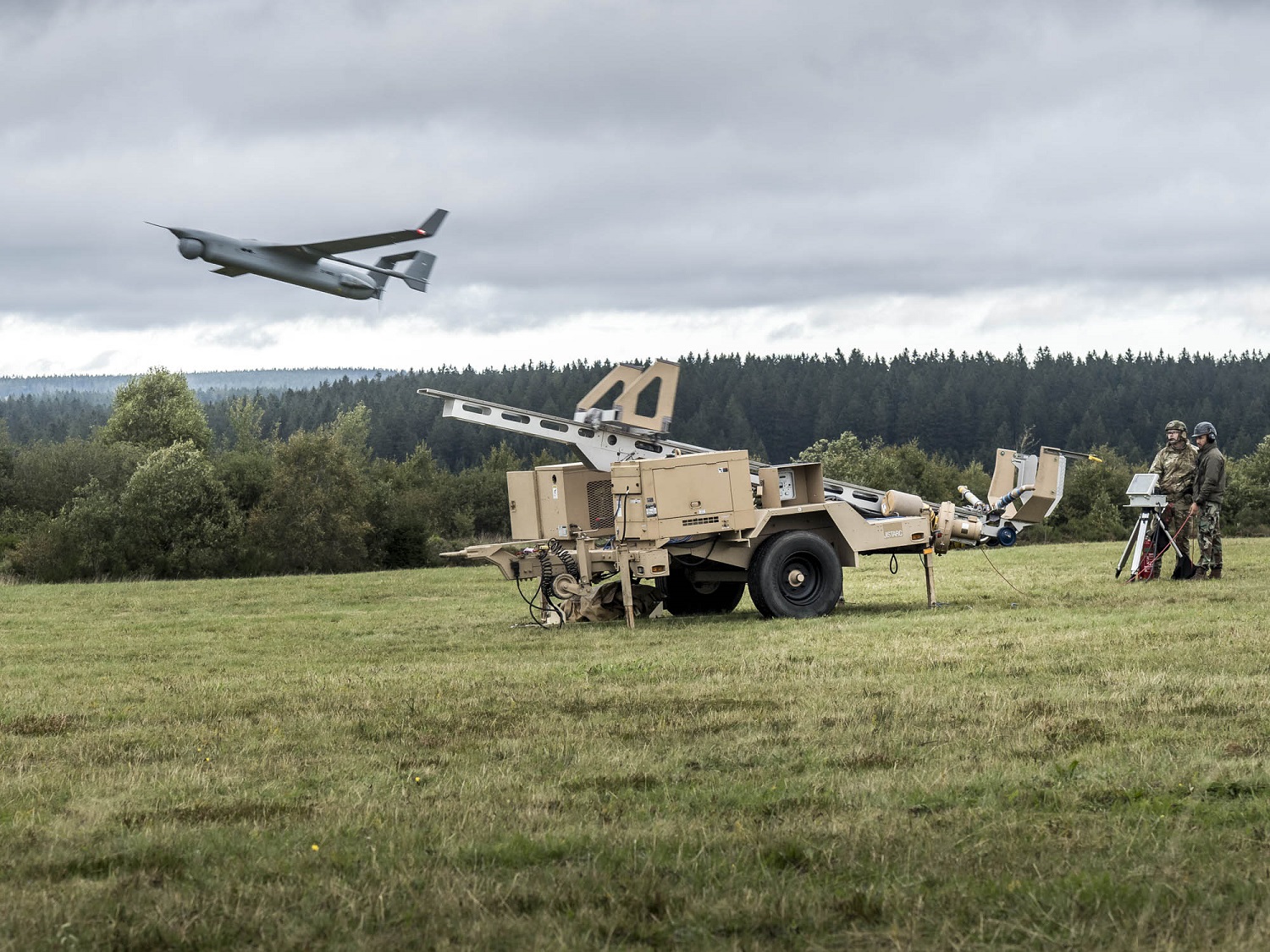In a remarkable display of cutting-edge technology during Belgium’s National Day celebrations, the Integrator drone soared into the sky, capturing the attention of King Philippe and military officials alike. The inaugural demonstration of this high-speed remotely piloted reconnaissance aircraft took place on Wednesday, September 20, in Elsenborn, marking a significant milestone for Belgium’s defense capabilities. The Bataillon de Chasseurs à Cheval (ISTAR) reconnaissance unit, having completed nearly eight months of intensive training in the Netherlands, unveiled its first Integrator platoon. This agile drone, capable of reaching speeds exceeding 200 km/h and covering distances of up to 74 km from its base, promises to revolutionize reconnaissance missions in challenging and remote areas.
The Integrator platoon comprises a team of highly skilled professionals, including Air Vehicle Operators, Image Analysts (IMINT), Sensor Operators responsible for camera operation, a mission manager, and a platoon leader. With plans to expand from one to two Integrator platoons and a shift from Heverlee to Lombardsijde, Belgium’s integration into this advanced drone program is well underway. Belgium’s acquisition of two Integrator systems in 2020, combined with the three from the Netherlands and two from Luxembourg, solidifies the Benelux region as a formidable force in unmanned aerial capabilities. These systems are collaboratively shared among the three countries, allowing for cross-border operation, and they adhere to Dutch laws and regulations.

The Integrator drone platoon in Belgium is rapidly evolving, with the first Air Vehicle Operator graduates and an analyst in training. The platoon’s flight simulator is currently based in Heverlee but is slated to move to Lombardsijde along with the rest of the military. Since 2020, Belgium has had two Integrator systems. If they add the three Dutch systems and the two Luxembourg ones, the Benelux has a total of seven Integrator systems. All these systems are part of a pool and are therefore available for all three countries. This means that a full Belgian crew can fly a Dutch aircraft and vice versa. The Netherlands provides the training and are also responsible for the maintenance of the equipment. By 2024, this platoon is expected to achieve full operational status and participate in a large-scale ISTAR exercise in Norway.
The Integrator, also known as the Boeing Insitu RQ-21 Blackjack, boasts an impressive array of capabilities, including high-zoom day full motion video (FMV) electro-optical (EO) technology, day and night FMV mid-wave infrared (MWIR)/EO dual sensors, a visual detection and ranging (ViDAR) radar, a laser designator, a pointer, and a rangefinder. The encrypted line-of-sight datalink ensures secure communication over a range of 50 nautical miles. With a modular design and NATO compliance, the Integrator can operate from land-based sites and maritime areas without the need for a runway, fostering interoperability across joint, coalition, and allied forces. . Being designed as a NATO-compliant platform, it enables interoperability across joint, coalition and allied forces. The UAV has a length of 2.5m, a wingspan of 4.9m, and a maximum take-off weight of 74.8kg.












